|
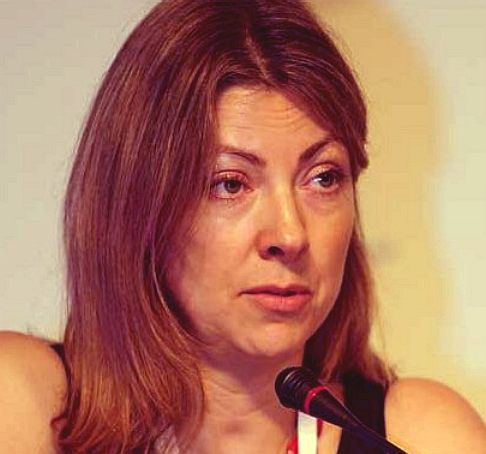
Charmain
Gooch - Global Witness founder
Global
Witness claims to be an NGO organisation that exposes the corrupt exploitation of natural resources and
international trade mechanisms. Global Witness was established in 1993.
Natural resource exploitation includes poverty, corruption and human rights abuses. The organisation has offices in London and
Washington D.C. Global Witness states that it does not have any political affiliation.
If this is true, they might like to begin their investigations in London,
starting with multi-layered taxes and a legal system that breaches Human
Rights at many levels - and what about Guantanomo Bay?
GW
claim that having identified an issue they implement campaigns to seek to end resource-linked conflict, and human
rights and environmental abuses.
Where
I've been on the receiving end of local authority attention gone mad over
a prolonged period, I can tell you some stories about the oppressed and
discrimination. In fact it was the Human Rights Act coming into law in the
UK, that finally put a brake on a vendetta that could have completely
ruined me after a few more years, but is in danger of re-ignition. Thus I am a firm believer in fair
treatment, fair trade and equal opportunities. I'm also an engineer and an
environmentalist, a strange combination I know, but, for all the above
reasons I applaud the sterling efforts of those working within Global
Witness free from discrimination or other influences. Those few are working
like us for our precious blue planet and all those
who inhabit it.
We all
have our way of contributing to society, mine is to try to do something to
show world leaders and future generations that alternative energy can be
practical. I'm doing this by helping to improve safety
at sea, working towards affordable housing and exposing fraud wherever I
find it. NK
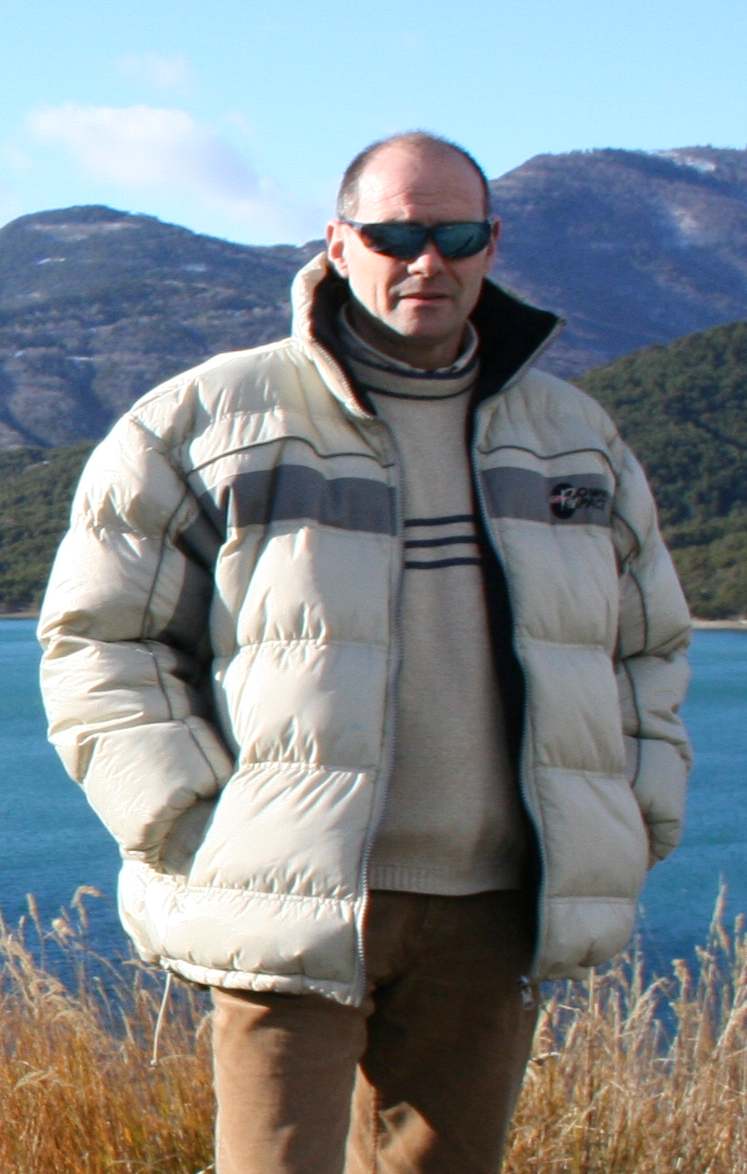
Nelson
Kruschandl - Independent Human Rights campaigner
Global
Witness was the first organisation that sought to break the links between
the exploitation of natural resources, and conflict and corruption; and
the results of our investigations and our powerful lobbying skills have
been not only a catalyst, but a main driver behind most of the major
international mechanisms and initiatives that have been established to
address these issues; including the Kimberley Process and the Extractive
Industries Transparency Initiative (EITI). Global Witness is largely
responsible for natural resources occupying the prominent role in the
international agenda that they
currently do.
And
away from the policy arena, Global Witness' hard-hitting investigations
have had direct and major impacts, such as the IMF withdrawal from
Cambodia in 1996 over corruption in the logging
industry, the imposition of timber sanctions on Charles Taylor's Liberia
in 2003, and the precedent-setting arrest and conviction of arms
trafficker and timber baron Gus Kouwenhoven, in the Netherlands in 2006.
Despite
the great strides made in the first decade of Global Witness' existence,
the struggle to ensure that natural resource exploitation is equitable and
sustainable is still in its early stages. Resource-fuelled wars such as
those that shattered the DRC, Liberia, Angola and Cambodia could happen
again tomorrow, and add to a death
toll that has topped over six million since the late 1990's, because the
international community has not addressed the trade in conflict resources.
The
competition between the old and emerging powers to secure the world's
remaining oil reserves is escalating, perhaps dangerously so. The scramble
by extractive industries to secure exploitation rights over the world's
mineral wealth, whilst at the same time resisting any kind of regulation
that would enforce good practice, threatens some of the planet's poorest
populations, whilst the world's dwindling forests, home
to millions of people and reservoirs of biodiversity, continue to face an
onslaught by some of the most corrupt regimes and companies, bent on
satisfying an insatiable demand for timber regardless of cost.
Natural
resources could be the key to ending Africa's poverty, and making it, and
other areas of the developing world, the economic powerhouses they should
be. But Global Witness believes that neither governments nor industry have
shown the leadership or the vision to create the sea change in the
international architecture that is necessary to make natural resources a
benefit and not a curse.
MONEY
LENDERS
Behind
every one of the corrupt natural resource deals that Global Witness
investigates, there is a route for the money.
It is not just the corrupt officials and the companies prepared to pay
bribes or shroud their deals in secrecy who allow corruption to take
place. The other - frequently invisible - players are the banks, offshore
shell companies, accountants and lawyers who can make the stolen money
disappear, or provide the funding for predatory deals. Financial
institutions can play a key role in funding, fuelling and facilitating
conflict and in abetting grand corruption in natural resource-rich
countries. Until their role is brought to light, and their capacity to
handle dirty money is impeded, corruption - and the poverty
and conflict that it fuels - will continue.
Global
Witness investigates the role of financial institutions in supporting
corruption and conflict, and uses this information to exert pressure on
policy-makers, law-enforcers and the financial industry itself to make the
global financial architecture more transparent, just and accountable.
OIL
RESERVES
Many
countries that are rich in oil, gas and other minerals are nonetheless
mired in poverty and poor government because the public revenues earned
from selling these resources have been squandered through corruption and
lack of government
accountability to citizens.
Citizens
of resource-rich countries cannot hold their governments to account, and
ensure that mineral resources are used in a fair and sustainable way,
unless they have full information about the management of these resources.
Through
field investigations and high-level advocacy, we work to increase
transparency in the flow of revenues from oil,
gas and mining companies to governments, as well as more transparency in
the award of mineral concessions, the trading of resources and the role of
banks and other middlemen in resource-related corruption.
OIL
MAY 2012 LIBERIA
Global Witness has said recent pledges by the Government of Liberia to enhance transparency and the involvement of civil society in its oil sector are a welcomed step forward. According to a press release issued recently, the international watch dog group noted: "One of the most significant developments came in February of this year, when the National Oil Company of Liberia (NOCAL) announced that it was committed to being transparent about the operations of oil companies and management of the money they are expected to generate."
"Adding further detail to this pledge, on 11 April NOCAL stated that it had submitted the agency's current annual budget to the Liberian Legislature. Most recently, on 19 April NOCAL announced that it would commission an independent audit of its finances for the past three years and would "open up the books and put them in order." Global Witness furthered.
The group maintained: "In another welcome move, the Liberian Government has begun including Liberian civil society organizations in discussions about reforms of the country's oil laws and policy."
Global Witness' Policy Advisor, Jonathan Gant pointed out that reforming Liberia's
oil sector will be hard and will take considerable time, but reforms will be successful if they are inclusive and if NOCAL embraces fiscal transparency.
"In promising further transparency and involving civil society groups in drafting policy, the Government is moving towards reforms the oil sector so badly needs," he stressed.
However, the Global Witness Policy Advisor stated that: "We are optimistic that, if the Government continues down the reformist path it is now taking, Liberia's citizens can reap the full benefits of the country's oil wealth."
Said the Global Witness Policy Advisor: "With Liberia's oil find and the involvement of large companies, it is possible that the sector could produce much needed revenue for the country."
But he was quick to note that "for Liberians to benefit from this oil rush the country has got to overcome a history of outdated laws, low capacity within the National Oil Company of Liberia (NOCAL) and corruption in the sector.
FORESTS
Forests
are not like other resources: people live in and depend on them and what
they contain; the poorer the people, the greater the dependence. Forests
are of immense ecological importance and are also one of the last bastions
against climate change. Despite all this, the almost automatic response
from the international donor community, especially the World
Bank, and from the governments of the producer countries themselves,
is to regard industrial export-based logging as a key economic driver that
can kick-start the economies of poor countries, but the major problem with
this approach, in tropical forests at least, is that it demonstrably
doesn't work. In virtually every country where this has been tried,
illegal logging and corruption have triumphed over economic theory,
resulting in vast revenue loss, exacerbation of poverty, human
rights abuses, environmental destruction and, too often, full scale
timber-fuelled war.
Global
Witness is working to change international thinking on forest
exploitation, to ensure that forests are a benefit to the communities that
depend on them, and are regarded as an international asset.
The
Amazon and DRC possess the two largest remaining tropical forest blocks in
the world, and Global Witness believes the world cannot afford to put
these global assets at risk by subjecting them to tried and tested
theories that do not work. Despite many initiatives surrounding forest law
enforcement, timber certification, chain of custody tracking and attempts
to ban the trade in illegal timber, deforestation increases every year,
with implications that include releasing 18% of total global CO2
emissions - more than the entire global transport sector.
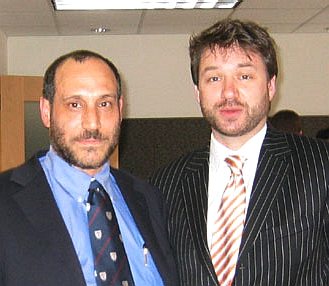
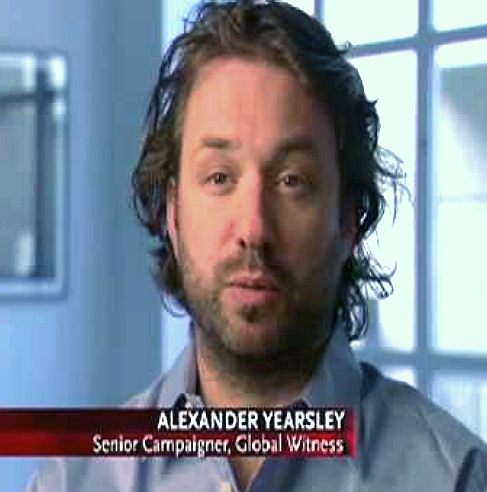
Douglas Farah and Alex Yearsley
- Future of Peace 2005
The
Future of Peace Operations program invited Alex Yearsley, a founder of Global
Witness, and Douglas Farah, freelance writer and former Washington
Post journalist, to discuss conflict fueled by illicit trade and
illegal resource exploitation in West Africa.
The
speakers addressed the potential of UN
mechanisms such as peace operations and investigative Panels of Experts
for stymieing illicit activities that help fund warring factions. Mr
Yearsley described the need for expanded UN mandates to authorize
explicitly peacekeepers' assistance in restoring governmental control over
natural resources and commodities. Mr Farah highlighted both achievements
and deficiencies of the Panels of Experts. The investigations of some
Panels have yielded impressively in-depth details about the make-up and
methods of illicit networks.
Other
Panels have been too shallow in their reports, failing to either uncover
significantly new information or offer names of the complicit. Panels have
also been undermined by a lack of UN follow-up on their findings. Farah
noted that the key determinants of Panels' effectiveness are the
personalities of individual Panel members - especially their willingness
to criticize influential individuals - and the political will of UN Member
States to implement Panel recommendations.
Alex
Yearsley is a senior manager at Global Witness working on a number of key
campaigns. He was involved with the conflict diamond campaign since
conception and ran the campaign for a number of years. The campaign
was jointly nominated with Partnership Africa Canada
for the 2003 Nobel Peace
Prize. He has been at Global Witness since 1997 and previously worked on
both the Cambodia and Oil transparency campaigns. Alex has a degree in
theology from Edinburgh University
and was briefly a presenter for MTV Europe. He
has been investigating the diamond trade for about seven years and is one
on only two people to have been at every Kimberly Process negotiating
meeting.

Blood
diamond! Is exploiting diamonds any different to exploiting any other
resource?
Profile
Global Witness states that its goals are to expose the corrupt exploitation of natural resources and international trade systems, to drive campaigns that end impunity, resource linked conflict, and human rights and environmental abuses. The organisation explores how diamonds and other natural resources can fund conflict or fuel corruption. It carries out investigations into the involvement of specific individuals and business entities in activities such as illegal and unsustainable forest exploitation, and corruption in oil, gas and mining
industries. How they achieve this and the accuracy of the information
gained thereby is open to interpretation after one source revealed that he
was let down by a lack of proper investigation and wrong conclusions drawn
and disseminated for personal gain. Their methodology is therefore suspect
at other levels.
Work
Global Witness has worked on diamonds, oil, timber, cocoa, gas, gold and other minerals. It has undertaken investigations and case studies in Cambodia, Angola, Liberia, DR Congo, Equatorial Guinea, Kazakhstan, Burma, Indonesia, Zimbabwe, Turkmenistan and Ivory Coast. It has also helped to set up international initiatives such as the Extractive Industries Transparency Initiative, the Kimberley Process, and the Publish What You Pay coalition.
The organization's first campaign involved work against the trade of illegal timber between Cambodia and Thailand which was funding the Khmer Rouge guerrillas.
Global Witness argues that natural resources can be, and have been, exploited to fund armies and militias who murder, rape and commit other human rights abuses against civilians. It says that "natural resources can potentially be used to negotiate and maintain peace" and "could be the key to ending Africa's poverty".
Cambodia
Global Witness’s first campaign was in Cambodia in the 1990s where the Khmer Rouge was getting money by smuggling illegal timber across the border into Thailand. Global Witness's campaigning resulted in the border being closed. The Observer newspaper attributed the shut down of the border to Global Witness's "detailed and accurate reporting".
After a report implicating relatives of Prime Minister Hun Sen and other senior government officials, the prime minister's brother, Hun Neng, who is also a provincial governor, was quoted in a Cambodian newspaper as saying if anyone from Global Witness returned to Cambodia, he would "“hit them until their heads are broken." In 2009, Global Witness released 'Country for Sale', a report on corruption in the allocation of Cambodia's natural resources licenses. In 2010 the report, 'Shifting Sand' was published which looked at sand dredging for export to Singapore. The report claimed that the trade was "monopolised by two prominent Cambodian Senators with close ties to Prime Minster Hun Sen".
Sierra Leone
Global Witness has also contributed in Sierra
Leone. As part of its campaign against conflict diamonds, Global Witness helped in the establishment of the Kimberley Process Certification Scheme (KCPS). The international governmental certification scheme that was set up to put a stop to trade in diamonds that fund conflict, requires governments to certify that shipments in rough diamonds are conflict-free.[14] Like many other Sub-Saharan African (SSA) countries, Sierra Leone is amongst those countries that are endowed with oil/mineral resources amidst social inequality, high prevalence of poverty and conflict.
Under rebel movements headed by Charles Taylor, who dominated the diamond industry, diamonds were being traded for guns with the Revolutionary United Front (RUF). This rebel group alone brought in as much as $125m at its peak. In 1998, Global Witness stated that diamonds were spurring those conflicts. Backed by investigation done by the UN in 2000, it was then verified that the gems were being carefully smuggled out from eastern Sierra Leone through Liberia, and subsequently into the international
market. Sanctions were later imposed by the UN on Liberian diamonds in March 2001.
On July 19, 2000, the World Diamond Congress adopted at Antwerp a resolution to reinforce the diamond industry's ability to block sales of conflict diamonds. Thereafter, with growing international pressure from Global Witness and other NGOs, meetings were hosted with diamond-producing countries over a 3 years, concluding in the establishment of an international diamond certification scheme in January 2003. The certification system on the export and import of diamonds, known as the KCPS, was called by the resolution, imposing legislation in all countries to accept shipment of only officially sealed packages of diamonds accompanied by a KP certificate guaranteeing that they were conflict-free. Anyone found trafficking conflict diamonds will be indicted of criminal charges, while bans were to be imposed on individuals found trading those stones from diamond bourses under the World Federation of Diamond Bourses.
The Kimberley Process (KP) in Sierra Leone was efficient in limiting the flow of conflict diamonds in a short time. More importantly, the KP assisted in restoring peace and security in the lives of these people, and by creating stability in these delicate environments, it facilitated their development. It was successful at channelling larger amounts of diamonds into the international market, boosting government revenues and consequently aiding in tackling development concerns. In 2006, an estimated $125m worth of
diamonds were legally exported from Sierra Leone, compared to almost none in the 1990s.
Despite its success, nine years later, on 5 December 2011, Global Witness announced that it has left the KP, stating that the scheme’s main flaws have not been mended, as governments no longer continue to show interest in reform.
OIL, GAS and MINING
Global Witness campaigns for more transparency in the oil, gas and mining sectors. It is a founding member of the Publish What You Pay (PWYP) coalition, which campaigns for “the mandatory disclosure of company payments and government revenues from the oil, gas, and mining sector”. Over 300 civil society groups worldwide are member of PWYP. Other PWYP founders include CAFOD, Oxfam, Save the Children UK, Transparency International UK and George Soros, Chairman of the Open Society Institute.
Global Witness also helped set up the Extractive Industries Transparency Initiative, which was announced by then UK Prime Minister Tony Blair at the World Summit on Sustainable Development in Johannesburg in September 2002 and formally endorsed by the World Bank in December 2003. The EITI is a result of the efforts of the PWYP campaigners. It is now supported by a majority of the world’s oil, mining and gas companies and institutional investors - in total worth US$8.3 trillion. Global Witness is a member of the EITI International Advisory Group and sits on the EITI Board.
Democratic Republic of Congo
Global Witness is active on a range of issues in the Democratic Republic of
Congo. Their website section on DRC reads; “Politicians, military and militia groups have plundered the country's natural wealth and used it to enrich themselves at the detriment of the population.” Global Witness has lobbied the UK government and the UN Security Council to stop the trade in minerals fuelling war in Eastern Congo.
Global Witness defines conflict resources as “natural resources whose systematic exploitation and trade in a context of conflict contribute to, benefit from or result in the commission of serious violations of human rights, violations of international humanitarian law or violations amounting to crimes under international law.”
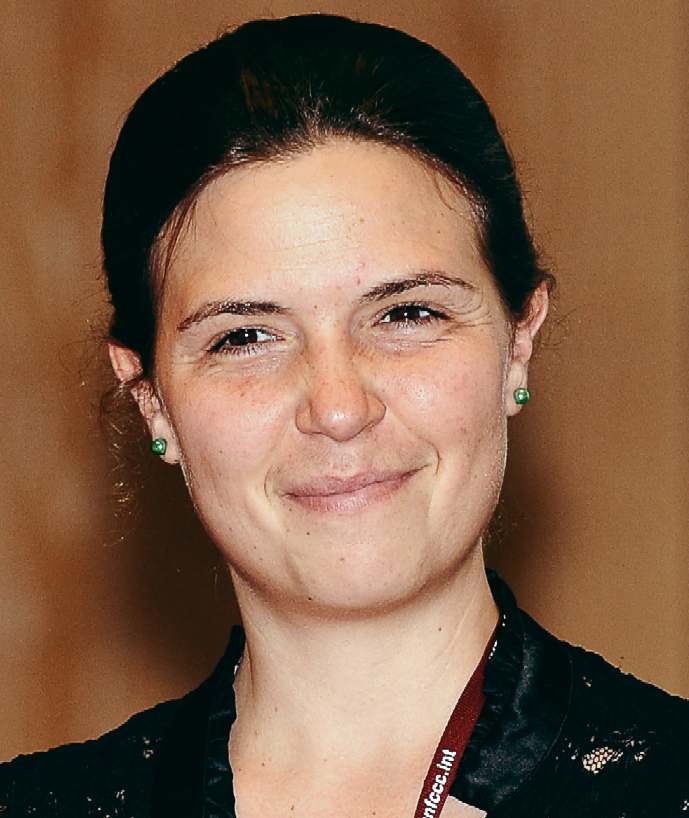
Laura
Furones, Global Witness campaigner
FORESTS
Global Witness has done a lot of work on forests. They produced reports on how timber helped to fund the civil war in Liberia and also looked at timber smuggling from Burma into China. Recently, Global Witness launched a court case in France against DLH, a company that they allege bought timber from Liberian companies during the civil war between 2001–2003, thereby providing support to Charles Taylor's regime.
Global Witness describes forests as the “last bastion against climate change”, with deforestation accounting for 18% of total global carbon dioxide emissions. On UN efforts to agree a deal on Reducing Emissions from Deforestation and Forest Degradation (REDD) Global Witness said: "REDD carries considerable risks for forests and local communities and will only succeed if civil society is engaged as an independent watchdog to ensure that the money is used in accordance with national laws and international guidelines."
Global Witness criticizes the World Bank endorsed approach of encouraging industrial export-based logging as a means to economic growth in developing countries, which it argues has been repeatedly shown to fail. Instead, Global Witness advocates management strategies which benefit the communities who are dependent on forests, the home countries and the environment and treat forests as an “international asset”.
BANKS
In 2009 Global Witness launched a campaign on the role of banks in facilitating corruption. Its report, Undue Diligence, names some of the major banks who have done business with corrupt regimes. It argues that 'by accepting these customers, banks are assisting those who are using state assets to enrich themselves or brutalise their own people' and that 'this corruption denies the world's poorest people the chance to lift themselves out of poverty and leaves them dependent on aid.'
Global Witness is on the Coordinating Committee of Taskforce on Financial Integrity and Economic Development, and is a member of BankTrack, and the UNCAC Coalition of Civil Society Organisations. In May 2009, Global Witness employee, Anthea Lawson, testified before the U.S. House Financial Services Committee on 'Capital Loss, Corruption and the Role of Western Financial Institutions'. In a letter to The Guardian dated 9 February 2010 Ms Lawson accused UK Banks of "demonstrated complicity" in corruption.
SUDAN
Global Witness has campaigned for transparency in Sudan’s oil industry. Global Witness published 'Fuelling Mistrust' in June 2009, a report that detailed discrepancies of up to 26% between the production figures published by the Sudanese Government and those published by the main oil company operating in the region, CNPC. This peace deal between the north and the south was predicated on an agreement to share the revenues from oil.
ZIMBABWE BLOOD DIAMONDS
In 1998 Global Witness released the report ‘A Rough Trade – The Role of Companies and Governments in the Angolan Conflict’ describing the role of the international diamond trade in funding the Angolan Civil War.February
2012 - BOSTON — Zimbabwe's diamonds, already dripping in blood, may become bloodier.
There is mounting evidence that Robert Mugabe is stashing the gem profits to finance violence in upcoming elections, according to a new report by Global Witness.
Diamond mine officials loyal to Mugabe are secretly caching millions earned by the country's diamond mines in tax-free havens such as Mauritius, Hong Kong and the British Virgin Islands, according to investigations by the activist group.
Zimbabwe's lucrative alluvial diamond fields in the eastern Marange Valley, are now under the control of Mugabe and his Zanu-PF party, with mine executives including retired and current police and military officers. This raises fears that some of the money will be used to finance violence and intimidation in the impending election campaign.
"If the next election is accompanied by violence there is a real risk that any bloodshed will be funded by diamond revenue," said Nick Donovan, a senior researcher for GlobalWitness.
“Zimbabwe desperately needs diamond revenues for health and education services, not AK 47s and flash cars for the elite,” said Donovan. “Zimbabwe must ensure that diamond mining companies are not used as an off-budget cash cow by ZANU PF loyalists in the military and police.”
Zimbabwe's 2008 elections were marked by widespread violence by Mugabe's police, army and militias, according to
Amnesty International,
Human Rights Watch and several other independent rights groups.
The Mugabe government has recently begun to set up army and militia camps across the country, raising fears that it plans to unleash a new round of violence, funded by the diamond money, to intimidate voters to support Mugabe and his ruling party, Zanu-PF.
Mugabe has called for elections in 2012 to end the troubled three-year coalition with former opposition leader Morgan Tsvangirai.
Since the Marange diamond fields were first discovered in 2003 the gemstones scooped up have sold for more than a billion dollars. The diamonds remaining are worth more billions, according to mining experts.
Mugabe did not leave that wealth alone. His government canceled the mining lease of a British company and in 2008 the army violently seized control of the diamond fields, using helicopter gunships and troops against Zimbabwean civilian miners. Some 200 people were killed and many others wounded and tortured when the army sealed off the diamond fields, according to human rights groups.
The diamond concessions have been allocated to companies controlled by Mugabe loyalists, including army and police officers, both retired and active. Violence and slave-like working conditions continue at the diamond mines, according to human rights groups.
Despite the evidence that Zimbabwe's diamonds are mined with violence and are funding the abuses of the Mugabe regime, the international diamond regulation body, the Kimberley Process, has approved their sale to international market. Last year Global Witness pulled out of the Kimberley Process charging that the body should not have given its seal of approval to Zimbabwe's diamonds.
Finance Minister Tendai Biti reports that this year the government treasury will earn $600 million from the diamonds, a figure far below what experts say it should be. Biti says that he needs more diamond money to pay teachers and other civil servants who have been on strike.
Diamond profits are being channeled to companies in Mauritius, Hong Kong and the British Virgin Islands, according to investigations by Global Witness. Those tax-free centers allow companies to hide corruption, tax avoidance and wild spending in Zimbabwe outside the national budget.
One diamond company is the Chinese mining and construction company, Anjin, and its board includes senior police, military and defence ministry officials, according to GlobalWitness.
One of the largest diamond firms, Mbada Diamonds, operates behind "a complex and opaque company structure," said Global Witness. A former top officer in the Zimbabwe Air Force holds a 25 percent stake in Mbada. Neither of these companies have released financial information to show who benefited from the diamond sales.
Global Witness continues to urge the world diamond industry to stop trading in diamonds that are funding human rights abuses.
Global Witness recommends that the Zimbabwean government should pass legislation that bans serving members in Zimbabwe’s security sector from exerting any control over mining companies – including being the beneficial owners of subsidiaries of companies operating in the country’s sector.
An there should be an immediate audit of every diamond concession granted so far in Marange and the details of the owners should be published, including the Mbada and Anjin companies.
More worries about Zimbabwe's impending elections have been sparked by the government's action to close down 29 non-governmental organizations, including Care International, operating in the key Masvingo province.
Mugabe's regime suspended the operations of non-governmental organizations ahead of the 2008 elections, preventing the rural areas from getting much-needed food aid and allowing the government to unleash violence and intimidation without the danger of being reported by independent groups.
The suspension of groups like Care, the Zimbabwe Peace Project and the Zimbabwe Community Development Program has heightened fears that Zimbabwe will see a new round of violence ahead of the elections.
Mugabe has called for elections in 2012, although he agreed in a 2008 power-sharing deal that the polls would not be held until 2013, after a new constitution has been put in place. South Africa and the 15-nation Southern African Development Community had endorsed the power-sharing agreement, so Mugabe will be breaking those pacts if he holds elections in 2012.
2010 - Global Witness criticized Zimbabwe for large-scale human rights abuses committed in the Marange diamonds fields. It published a report 'Return of the Blood Diamond' which criticised the Kimberley Process Certification Scheme for repeatedly failing to react effectively to the crisis in Zimbabwe. In July 2010 Tendai Midzi, writing in The Zimbabwe Guardian, accused Global Witness and Partnership Africa Canada of being “but a figment of the western governments they represent'.
December
2011 - Charmian Gooch, a Founding Director of Global Witness said: “Nearly nine years after the Kimberley Process was launched, the sad truth is that most consumers still cannot be sure where their diamonds come from, nor whether they are financing armed violence or abusive regimes.” He added: “The scheme has failed three tests: it failed to deal with the trade in conflict diamonds from Côte d’Ivoire, was unwilling to take serious action in the face of blatant breaches of the rules over a number of years by Venezuela and has proved unwilling to stop diamonds fuelling corruption and violence in Zimbabwe. It has become an accomplice to diamond laundering – whereby dirty diamonds are mixed in with clean gems.”
In a shocking move, the Kimberley Process recently authorised exports from two companies operating in the controversial Marange diamond fields in Zimbabwe. The Zimbabwean army seized control of the area in 2008, killing around 200 miners. Mining concessions were then granted in legally questionable circumstances to several companies, some of them associated with senior figures in Zimbabwean President Robert Mugabe’s Zanu PF party. Newspapers have reported that the Zimbabwean Central Intelligence Organisation, the state security service aligned with Mr Mugabe whose members are accused of committing acts of violence against opposition supporters, directly benefits from off-budget diamond revenues.
Gooch observes: “Over the last decade, elections in Zimbabwe have been associated with the brutal intimidation of voters. Orchestrating this kind of violence costs a lot of money. As the country approaches another election there is a very high risk of Zanu PF hardliners employing these tactics once more and using Marange diamonds to foot the bill. The Kimberley Process’s refusal to confront this reality is an outrage.” He adds: “Consumers should not buy Marange diamonds, and industry should not supply them. All existing contracts in the Marange fields should be cancelled and retendered with terms of reference which reflect international best practice on revenue sharing, transparency, oversight by and protection of the affected communities.”
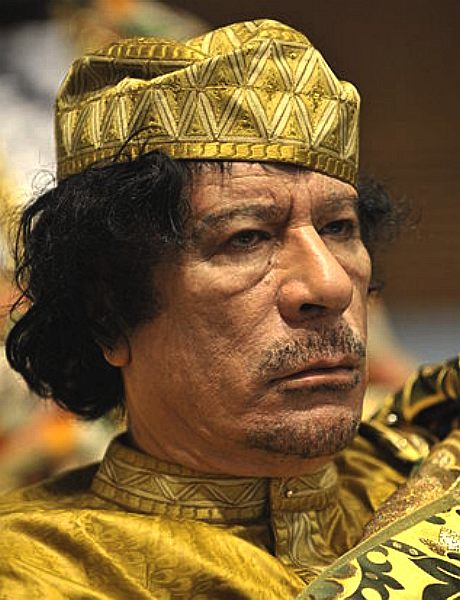
HONOURS
Global Witness and Partnership Africa Canada were jointly nominated by U.S. House of Representatives and Senate members for the 2003
Nobel Peace Prize for work on links between conflict and diamonds in several African
countries. How this nomination came about is unclear.
Winner of the Gleitsman Foundation prize for international activism (2005)
Winner of the Center for Global Development/Foreign Policy Magazine Commitment to Development Ideas in Action Award (2007)
INCOME
The majority of Global Witness’ funding comes from grants made by foundations, governments and charities. One of their main funders is the Open Society Institute, which also funds Human Rights
Watch. They also get money from the Norwegian and
British governments, the Adessium Foundation, and Oxfam Novib.
In an interview in The Guardian newspaper in 2007, Patrick Alley, one of the Founding Directors, rejected the claim that receiving money from governments could bias their campaigns: "Being campaign-led, rather than funding-led, means that our independence is never comprised," he argued. "The Department for Trade and Industry did once ask if we'd like to sign a confidentiality clause. We said we wouldn't take the funding under those conditions. No other government has ever tried to impose any restrictions."
From December 2008 to November 2009 Global Witness's income was £3,831,831. Of this, approximately 61% came in the form of grants from private trusts and foundations, 33% from governments, 3% from multi-lateral and non governmental organisations, and 3% from bank interest and other. Global Witness says it spends 75% of its funds on campaigns, 7% on communication and fundraising, and 18% on support and governance.
It seems like an awful lot of money for very little return. In the spirit
of transparency, we'd like to see accounts for each campaign, the earnings
of those within GW, the number of volunteers in GW, and better still, the
results of each campaign.
LINKS
Eight
months of Independent Forest Monitoring in Nicaragua - Press
Release 03/04/2007 – Spanish
Two
forest activists murdered in Honduras
- Press Release 22/01/2007
Power
and illegal logging: exploitation of Honduran forests - Press
Release 26/04/2006
New
Independent Forest Monitoring reports illegal activities in Honduran
forests
Press Release – 29/03/2006
Global
Witness launches Guide to Independent Forest Monitoring (IFM)
Press Release – 28/07/2005
Global
Witness' new report on slow progress in Cameroon’s efforts to stop
illegal logging
Press Release – 16/06/2005
Cameroon:
Global Witness details cases of illegal logging
Press Release – 05/02/2003
Reports
of the Independent Observer of Forest law enforcement in Cameroon Press Release – 08/07/2002
Global
Witness Independent Observer of the
forest sector in Cameroon - Press Release
13/07/2001
www.globalwitness.org/pages/en/about_us.html
www.globalwitness.org
http://eiti.org/supporters/civilsociety
kimberleyprocess.com/structure/working_group_en.html
http://www.publishwhatyoupay.org/where/country/united-kingdom
http://www.globalwitness.org/about-us/our-history
http://www.globalwitness.org/data/files/pages/2009_annual_review.pdf
http://www.globalwitness.org/pages/en/about_us.html
Dangers
for journalists who expose environmental issues
http://www.rsf.org/IMG/rapport
http://www.globalwitness.org/media_library_detail.php/713/en/country_for_sale
http://www.globalwitness.org/media_library_detail.php/90/en/a_rough_trade
http://www.globalwitness.org/campaigns/conflict/conflict-diamonds/kimberley-process
http://www.globalwitness.org/campaigns/post-conflict/liberia/liberia-sierra-leone-and-charles-taylor
http://www.cnnstudentnews.cnn.com/2000/WORLD/africa/07/19/blood.diamonds.
www.globalwitness.org/library/global-witness-leaves-kimberley-process-calls-diamond-trade-be-held-accountable
http://web.worldbank.org/WBSITE/EXTERNAL/NEWS/
http://www.globalwitness.org/pages/en/democratic_republic_of_congo.html
http://www.globalwitness.org/pages/en/definition_of_conflict_resources.html
http://www.globalwitness.org/media_library_detail.php/137/en/timber_taylor_soldier_spy
http://www.globalwitness.org/media_library_detail/en/bankrolling_brutality_why_european_timber_company
http://www.globalwitness.org/pages/en/forests.html
http://news.mongabay.com/2010/hance_corruption_redd
http://www.globalwitness.org/media_library_detail.php/735/en/undue_diligence_how_banks_do_business_with_corrupt
http://www.house.gov/apps/list/hearing/financialsvcs_dem/111-34.pdf
http://www.guardian.co.uk/world/2010/feb/09/bae-systems-corruption-tax-havens
http://www.globalwitness.org/media_library/fuelling_mistrust_the_need_for_transparency_in_sud
http://www.globalwitness.org/media_library_detail.php/993/en/return_of_the_blood_diamond_how_the_crisis_in_zimb
http://www.talkzimbabwe.com/kimberley-process---the-new-colonial-project-cms-534
http://www.gleitsman.org/intHonoree.html
http://www.globalwitness.org/pages/en/our_funders.html
http://www.soros.org/
http://www.adessium.org
http://www.guardian.co.uk/society/2007/jan/31/voluntarysector.conservation
Annual
Report, 2009, 'Financial Information' p27
Globalwitness.org/data/2009_annual_review
http://allafrica.com/stories/oil
exploitation
http://www.globalpost.com/news/africa/zimbabwes-blood-diamonds-fund-violence-charges-global-witness
http://www.financialtaskforce
2011/05/26/gaddafis-biggest-bankers-hsbc-goldman-sachs-societe-generale-jpmorgan-chase/
http://www.reuters.com/article/2011/12/06/ozatp-diamonds-ngo
http://www.iisd.ca/climate/sb30/enbots/09.html
http://www.thelondoneveningpost.com/global-witness-withdraws-from-the-kimberley-process/
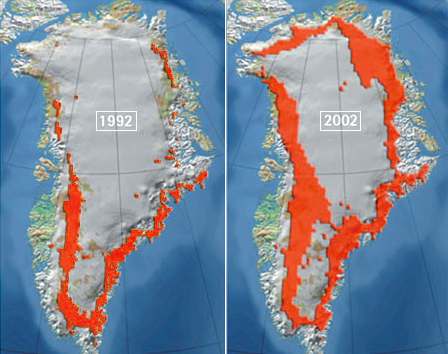
Greenland
ice sheet melt extent
CONTACTS
Global
Witness
PO Box 6042
London, N19 5WP
UK
T
+44 (0)20 7272 6731
F +44 (0)20 7272 9425
US
office
Global Witness
8th Floor, 1120 19th Street West
Washington DC 20036
US
T
+1 202 721 5670
F +1 202 530 0128
If
you have a general enquiry, please email mail@globalwitness.org.
http://www.globalwitness.org
MORE
LOCAL AGENDA 21
UK
PARLIAMENT A-Z HOUSE
OF LORDS A-Z UK
COUNCIL'S
AGENDA 21

The
Solar Navigator - SWASSH (Small Waterplane Area Stabilized Single Hull)
test model 2012
The
latest Solarnavigator is designed to be capable of an autonomous
world navigation set for an attempt
in
2015 if all goes according to schedule.
|








